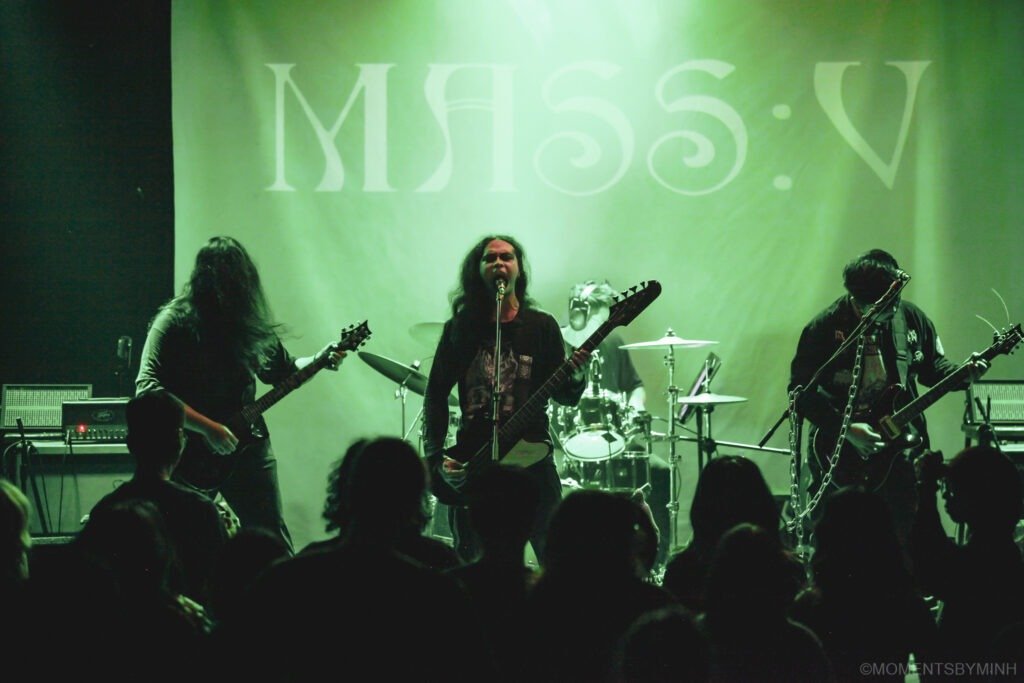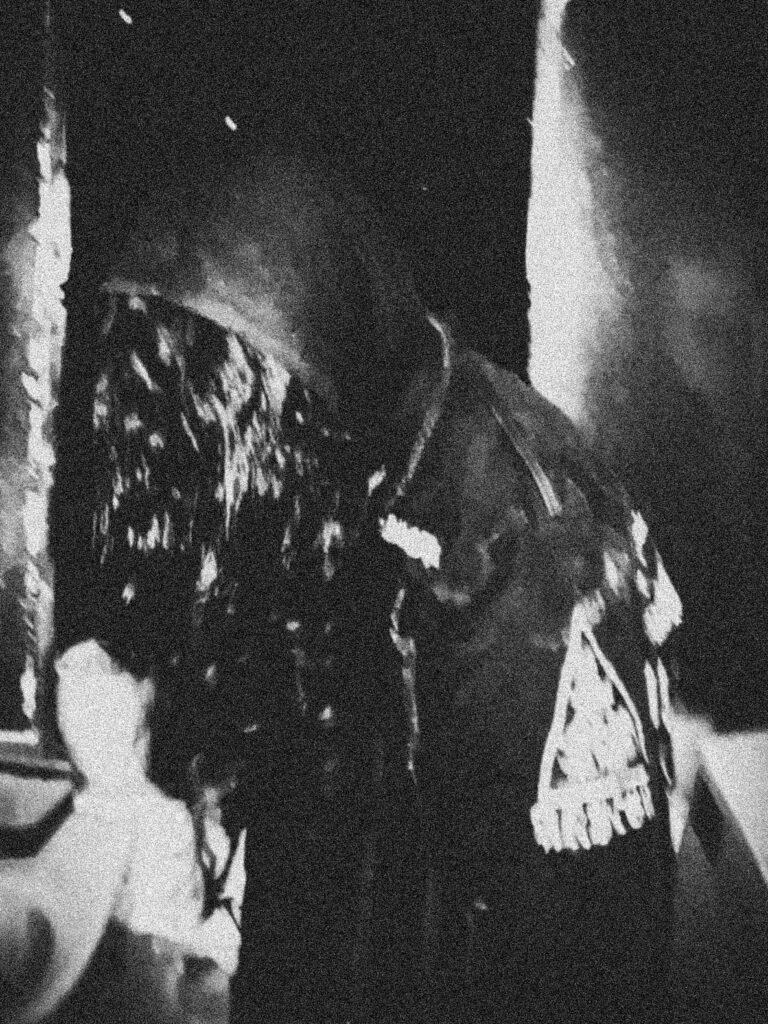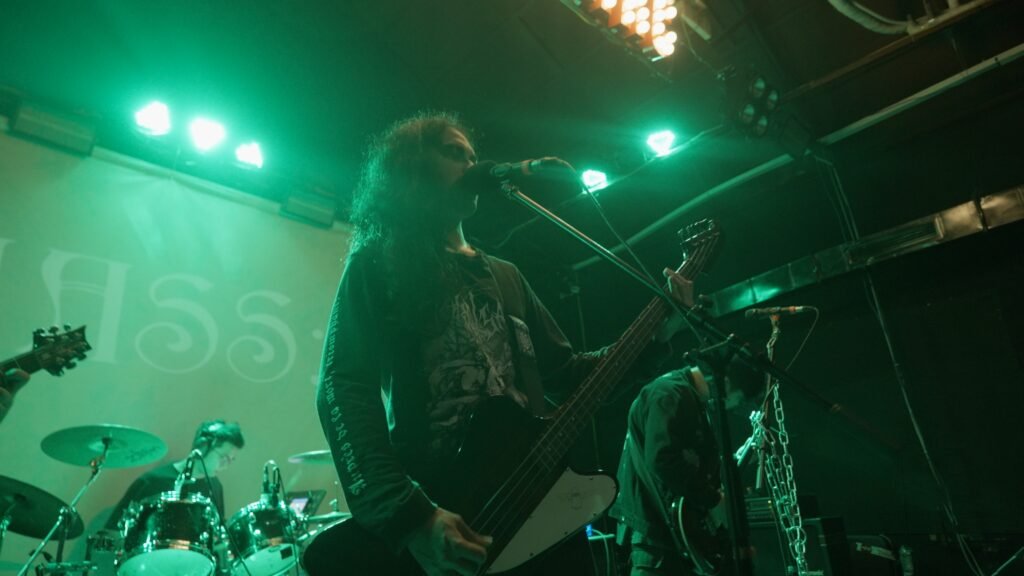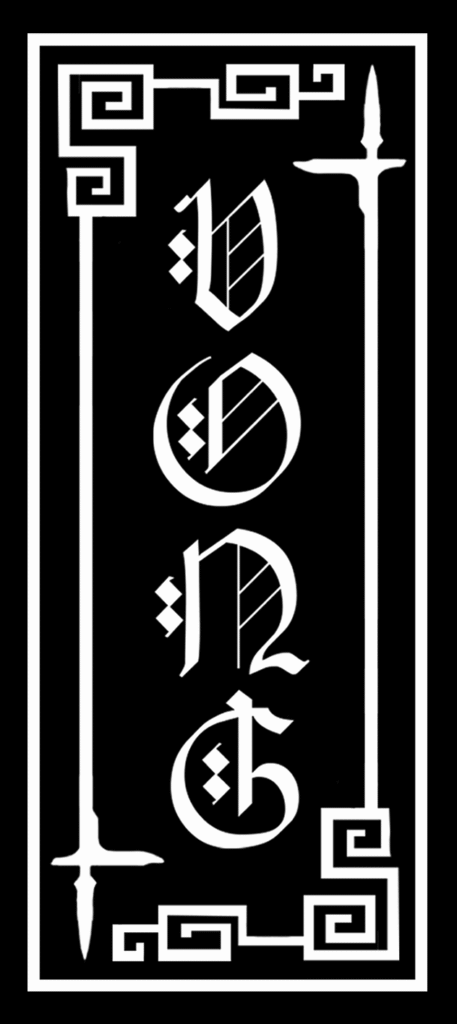Vong ra đời không phải với sự phô trương rầm rộ, mà như một bóng ma hiện diện, một tiếng vọng sinh ra từ những góc khuất bị lãng quên của Hà Nội, thấm đẫm ký ức, huyền thoại và tang tóc. Dự án được thành lập bởi một nhân vật bí ẩn, chỉ được biết đến với cái tên Indigo Tongue, người đã bắt đầu tạo nên những âm thanh sống động dưới nghệ danh này vào năm 2019. Vong không chỉ là một ban nhạc—mà còn là một phương tiện để truyền tải những vết thương chưa lành của lịch sử, những bất ổn tinh thần và nỗi đau của tổ tiên qua một lăng kính black metal đậm chất Việt Nam.
Khác với phần lớn dòng nhạc cực đoan đến từ Đông Nam Á, Vong không theo đuổi sự hoành tráng hay thống trị sân khấu. Bản chất của nó bắt nguồn từ nỗi sợ hãi tinh tế và cơn thịnh nộ lặng lẽ. Dự án lấy cảm hứng từ quá khứ ám ảnh của Việt Nam, những ngôi mộ vô danh, tinh thần dân gian và hàng thế kỷ chấn thương cộng đồng, được diễn giải qua một bộ lọc black metal thiên về nghi lễ hơn là bạo loạn. Âm nhạc khắc nghiệt và tối giản, nhưng sâu lắng, thường được mô tả là một lời than thở ám ảnh hơn là một cuộc tấn công dữ dội.

Bản demo đầu tay của Vong, "A Wander in Liminality", được phát hành lần đầu trên băng vào năm 2019 thông qua hãng đĩa Analog của Na Uy Ragnarok và bản kỹ thuật số thông qua House of Ygra. Bản demo ngay lập tức thu hút sự chú ý của một nhóm thính giả nhỏ nhưng trung thành nhờ chất liệu thô mộc, giai điệu da diết và giọng hát nội lực. Bản tái phát hành năm 2022 của "A Wander in Liminality" dưới dạng album đầy đủ đã mở rộng câu chuyện âm thanh, duy trì tính toàn vẹn của chất lo-fi của bản gốc, đồng thời tiếp cận được lượng khán giả rộng lớn hơn với chất u ám trầm tư của nó.
Điều thực sự làm nên sự khác biệt của Vong chính là cách tiếp cận black metal như một hình thức biểu đạt tâm linh. Không hề có kịch tính, không có những tuyên bố hùng hồn - chỉ có những câu thần chú âm ỉ cháy từ ranh giới của sự tồn tại. Indigo Tongue, người sáng tạo và biểu diễn duy nhất của ban nhạc, hiếm khi xuất hiện trước công chúng và giữ mọi thông tin liên lạc một cách bí ẩn, gìn giữ sự bí ẩn của dự án và ưu tiên thông điệp hơn phương tiện truyền thông.
Các buổi biểu diễn trực tiếp, nếu có, rất hiếm hoi và luôn ẩn chứa nhiều bí ẩn. Vong chủ yếu tồn tại trong các bản thu âm—tài liệu nghi lễ, chứ không phải sản phẩm giải trí—khiến mỗi bản phát hành đều mang đậm dấu ấn cá nhân và văn hóa. Sự vắng mặt của Vong trên Spotify là một sự thiếu sót có chủ đích, phù hợp với triết lý của dự án là không bị ràng buộc bởi các thuật toán tiêu thụ đại chúng.
Bằng cách đan xen tín ngưỡng dân gian Việt Nam, truyền thống tang lễ và thẩm mỹ black metal tối giản, Vong vẽ nên chân dung một vùng đất và tâm hồn đang chìm trong tang tóc. Nó không phải là một hành động thách thức mà là một lời thì thầm từ hư không, cuốn hút bạn không phải bằng sự phô trương mà bằng nỗi buồn.




